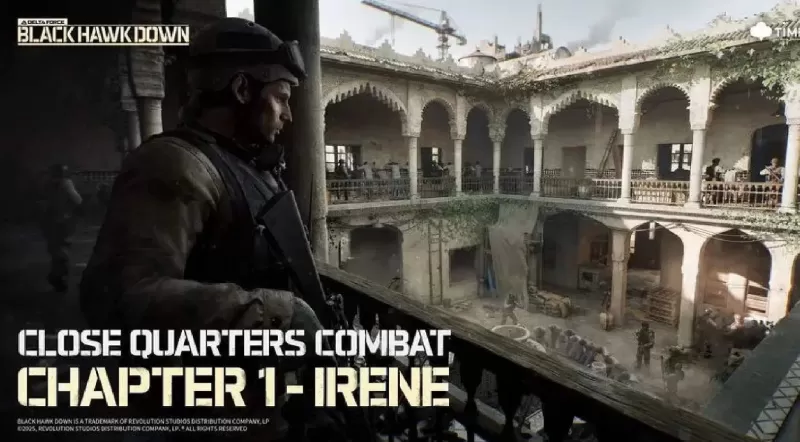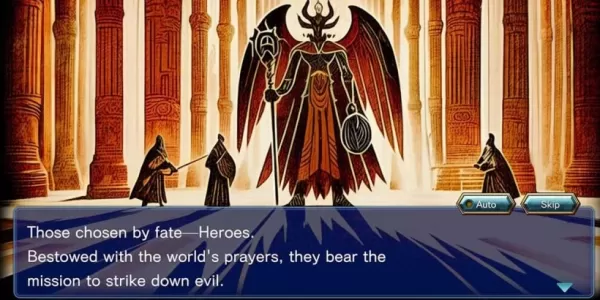"Assassin's Creed: 10 Historical Impacts"
Ubisoft has once again activated the Animus, this time transporting us to Japan's Sengoku Period with Assassin's Creed Shadows. Set in 1579, the game introduces historical figures such as Fujibayashi Nagato, Akechi Mitsuhide, and Yasuke, the African samurai who served Oda Nobunaga. As with previous entries in the series, these real-life characters are seamlessly integrated into a narrative that blends historical events with fictional elements, crafting a tale rich in themes of revenge, betrayal, and murder. While the game humorously exaggerates the need for Yasuke to gather XP for a gold-tier weapon, it underscores the series' tradition of weaving historical fiction with science fiction.
Assassin's Creed is renowned for its historical fiction genre, which explores gaps in history to narrate a science fiction conspiracy about a secret society seeking world domination through the mystical powers of an ancient civilization. Ubisoft's commitment to creating immersive open-world environments rooted in history is commendable, but it's crucial to recognize that these games are not history lessons. The developers creatively alter historical facts to enhance the storytelling, leading to numerous "historical inaccuracies." Here are ten notable instances where Assassin's Creed has taken creative liberties with history.
The Assassins vs Templars War

The conflict between the Assassins and Templars, a central theme in the Assassin's Creed series, is entirely fictional. Historical evidence does not support any ongoing war between the Order of Assassins, founded in 1090 AD, and the Knights Templar, established in 1118. Both groups existed for approximately 200 years and were disbanded by 1312. The only historical overlap these groups had was during the Crusades, which only the first Assassin's Creed game accurately reflects. Ubisoft's portrayal of a centuries-long ideological battle between these groups is a creative invention, inspired by fictional conspiracy theories about the Knights Templar.
The Borgias and their Superpowered Pope

In Assassin's Creed 2 and Brotherhood, the focus is on Ezio's battle against the Borgia family. The game portrays Cardinal Rodrigo Borgia as the Grand Master of the Templar Order, who becomes Pope Alexander VI. This narrative is fictitious, as the Templars did not exist during the late 1400s. The idea of a Borgia plot to harness the magical Apple of Eden and install a pope with god-like powers is purely imaginative. Furthermore, Ubisoft's portrayal of the Borgias as villainous Renaissance-era gangsters diverges from historical accounts, particularly with Cesare Borgia's character, who is depicted as incestuous and psychopathic, despite lacking solid historical evidence for such traits.
Machiavelli, Enemy of the Borgias

Assassin's Creed 2 and Brotherhood cast Niccolò Machiavelli as Ezio's ally and leader of the Italian Assassin's Bureau. However, this depiction contradicts historical facts, as Machiavelli's philosophy of strong authority conflicts with the Assassin's Creed's anti-authority stance. Additionally, Machiavelli did not view the Borgias as adversaries; he respected Rodrigo Borgia's cunning and served as a diplomat in Cesare Borgia's court, considering him a model ruler. Ubisoft's portrayal of Machiavelli as an Assassin fighting against the Borgias is a significant deviation from historical reality.
The Incredible Leonardo da Vinci and his Flying Machine

Assassin's Creed 2's depiction of Leonardo da Vinci as Ezio's friend and inventor is engaging, reflecting da Vinci's historical wit and charisma. However, the game alters his timeline, having him move from Florence to Venice in 1481, contrary to his actual relocation to Milan in 1482. Ubisoft also brings to life many of da Vinci's designs, including a machine gun and tank, which have little historical evidence of being built. The most fantastical element is Ezio's use of da Vinci's flying machine to glide over Venice, despite there being no historical proof that any of da Vinci's flying contraptions ever took flight.
The Bloody Boston Tea Party

The Boston Tea Party, a pivotal event in the American Revolution, was a non-violent protest against the Tea Act. In Assassin's Creed 3, however, the event turns violent, with protagonist Connor, dressed as a Mohawk, killing multiple British guards while others dump tea into the harbor. This dramatic reinterpretation transforms the peaceful protest into a bloodbath, suggesting that Ubisoft felt the need to enhance the event's intensity for gameplay. The game also attributes the planning of the protest to Samuel Adams, despite historians' uncertainty about his involvement, showcasing Ubisoft's tendency to fill historical gaps with creative storytelling.
The Lone Mohawk

Assassin's Creed 3's protagonist, Connor, is a Mohawk who aligns with the Patriots during the Revolutionary War, a scenario that conflicts with historical records. The Mohawk people were allies of the British, hoping for protection against American settlers. Historians have debated Connor's portrayal, noting that his actions would have been seen as betrayal by his people. While there are rare instances of Mohawks fighting against the British, such as Louis Cook, Ubisoft's depiction of Connor is a "what if?" scenario, exploring the narrative potential of a Mohawk joining the Patriots.
The Templar Revolution

Assassin's Creed Unity's take on the French Revolution is controversial, suggesting that the Templars orchestrated the revolution as part of a conspiracy against the French monarchy and aristocracy. The game's portrayal of the Templars causing a food crisis to spark the revolution contradicts historical causes such as droughts and bad harvests. Unity also simplifies the revolution to the Reign of Terror, ignoring its broader context and duration. This narrative implies that the Templars could manipulate such a complex series of events, which is far from historical reality.
The Controversial Killing of King Louis 16

In Assassin's Creed Unity, the execution of King Louis 16 is depicted as a close vote influenced by a Templar, suggesting it was a contentious decision. Historically, the vote was a clear majority, with 394 in favor of execution and 321 against. Unity also downplays the widespread public anger against the French aristocracy, barely addressing King Louis's attempt to flee to Austria, which further tarnished his reputation. The game's portrayal of the revolution's causes and the king's execution reflects a softer stance on the aristocracy than historical accounts suggest.
Jack the Assassin

Assassin's Creed Syndicate reimagines Jack the Ripper as a rogue Assassin attempting to take over the London Brotherhood. The game's narrative suggests that Jack, trained by Jacob Frye, becomes disillusioned and turns the Brotherhood into a criminal gang. This creative twist on the historical serial killer, whose true identity remains unknown, exemplifies Ubisoft's approach to filling historical gaps with fiction. In the game, Jacob's sister, Evie, eventually stops Jack's reign of terror, adding a dramatic flair to the historical mystery.
The Assassination of the Tyrant Julius Caesar

The assassination of Julius Caesar, a pivotal event in Roman history, is significantly altered in Assassin's Creed Origins. The game portrays Caesar as a proto-Templar whose death is necessary to prevent global tyranny. However, this depiction contradicts historical records, which show Caesar as a popular leader who implemented reforms to benefit the poor and retired soldiers. Origins also inaccurately frames Caesar's assassination as a victory against tyranny, ignoring the subsequent Liberators' Civil War that led to the collapse of the Roman Republic and the rise of the Empire. The game's narrative oversimplifies the complex political and social dynamics of the time.
The Assassin's Creed series is celebrated for its dedication to creating historically immersive environments, yet these are often embellished with fictional elements. This is the essence of historical fiction, not historical documentary. The creative liberties taken by Ubisoft enhance the storytelling and gameplay experience. What are your favorite examples of Assassin's Creed bending historical truths? Share your thoughts in the comments.
-
1
![Roblox Forsaken Characters Tier List [UPDATED] (2025)](https://imgs.ksjha.com/uploads/18/17380116246797f3e8a8a39.jpg)
Roblox Forsaken Characters Tier List [UPDATED] (2025)
Mar 17,2025
-
2

Roblox UGC Limited Codes Unveiled for January 2025
Jan 06,2025
-
3

Stardew Valley: A Complete Guide To Enchantments & Weapon Forging
Jan 07,2025
-
4

Pokémon TCG Pocket: Troubleshooting Error 102 Resolved
Jan 08,2025
-
5

Free Fire Characters 2025: Ultimate Guide
Feb 20,2025
-
6

Blood Strike - All Working Redeem Codes January 2025
Jan 08,2025
-
7

Blue Archive Unveils Cyber New Year March Event
Dec 19,2024
-
8

Roblox: RIVALS Codes (January 2025)
Jan 07,2025
-
9

Delta Force: A Complete Guide to All Campaign Missions
Apr 09,2025
-
10

Cyber Quest: Engage in Captivating Card Battles on Android
Dec 19,2024
-
Download

A Simple Life with My Unobtrusive Sister
Casual / 392.30M
Update: Mar 27,2025
-
Download

Random fap scene
Casual / 20.10M
Update: Dec 26,2024
-
Download
![Corrupting the Universe [v3.0]](https://imgs.ksjha.com/uploads/66/1719514653667db61d741e9.jpg)
Corrupting the Universe [v3.0]
Casual / 486.00M
Update: Dec 17,2024
-
4
Ben 10 A day with Gwen
-
5
Oniga Town of the Dead
-
6
A Wife And Mother
-
7
Cute Reapers in my Room Android
-
8
Permit Deny
-
9
Utouto Suyasuya
-
10
Roblox














